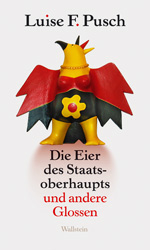Biographies Inessa (Inès) Armand

Commons.Wikimedia.org
born on May 8, 1874 in Paris, France
died on September 24, 1920 in Kislovodsk/Caucasus
French-Russian revolutionary
150th birthday on May 8, 2024
Biography
Everything seemed to point towards a middle-class woman's life when Inès-Elizabeth Stéphane, after the early death of her father, a famous opera singer, moved to live with her aunt and grandmother in Moscow, where she received a good education, graduated at 17 with a diploma in private tutoring and married Alexander Armand, the son of a wealthy Moscow factory owner, two years later.
1200 workers were employed in the Armand factory that produced woolen fabrics. Shocked by the plight of the workers, the fate of their wives and the sight of their scrofulous children, she and her husband set up a school for workers' and peasants' children. In 1900, she became chairwoman of the Association for the Improvement of Women's Welfare in Moscow.
From then on, what she had sworn to herself as a fifteen-year-old while reading Tolstoy's War and Peace became her maxim: “He said there that Natasha had become a woman wedded to her homeland. I remember that I found this sentence terribly offensive, that it hit me like the stroke of a whip and it made me firmly resolve to never become a woman, but to always remain a human being.”
While Inès was relaxing with her five children near Lake Geneva from the fall of 1904 to the summer of 1905, she read Lenin's Development of Capitalism in Russia and other Marxist literature - and became an enthusiastic Bolshevik. Living with her brother-in-law later in 1905, she was arrested for the first time for her work for the Bolsheviks.
She then alternated between illegal party work in Russia and in western Europe. She was editor of Rabotnitsa, the Bolshevik women's newspaper, played a leading role at the International Socialist Women's Conferences, was head of the party school near Paris and from 1909 was a close confidante of Lenin, with whom she was said to have a love affair.
“I want to write a brochure about the family. I already have a lot of interesting material… Your questions about love, the family and the like have given me the idea of writing about them,” she wrote to her daughter. Free love was now also an important issue for her.
In full agreement with her famous colleague, Alexandra Kollontai, she demanded that the personal become political, resulting in an immediate reprimand from the hypocritical patriarch Lenin.
In January 1914, he wrote to her: “I must express my opinion about one thing: I advise that §3 - the demand (of women) for freedom of love - be deleted altogether. In reality, this is not a proletarian demand, but a bourgeois one.” Inessa Armand did not publish her beliefs on the issue of women.
After a life for the party - “Paving the streets is certainly easier,” she once remarked to her daughters - she died of cholera in the Caucasus in 1920.
(Text from 1998; translated with DeepL.com; edited by Ramona Fararo, 2024.)
Please consult the German version for additional information (pictures, sources, videos, bibliography).
Author: Susanne Gretter
If you hold the rights to one or more of the images on this page and object to its/their appearance here, please contact Fembio.



